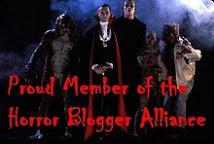If you're willing to believe that Abraham Lincoln was actually a Vampire Hunter, you're either a fool or a fantastic mind of underestimated brilliance. (It's not my place to judge which, thankfully.) On the other hand, if you're willing to accept a movie called Abraham Lincoln: Vampire Hunter then you'll probably have fun with this one.
I know that sounds like an obvious statement, but I don't have anything profound to say about this adaptation of the Seth Grahame-Smith novel. Like many of the most ridiculously conceived genre films out there, the film's biggest success is that it offers exactly what it advertises. We get a tale of the life of Abraham Lincoln, played with a stiff seriousness by Benjamin Walker, and we get the hunting of vampires. And we get a lot of it.
If you're looking for a historical account of Lincoln's life, this is (again, obviously) not it. The story begins with the future politician's mother's death at the hands of a vampire when he was just nine. Years later, the young Mr. Lincoln becomes old enough to start hunting for revenge, which leads him to a trainer (Dominic Cooper) and a profession as a vampire hunter. But being the 19th century's version of Buffy isn't the most interesting task, I guess, so Abe soon makes his way to Springfield, where his political career picks up steam.
There's no escaping his fate, however, as Lincoln and his friends often run across the undead. And as we move into his presidential tenure and the things he's most remembered for - you know, things like fighting against slavery and that whole Civil War/Gettysburg thing - history gets more than a few re-writes. In this version we have vampires, led by stodgy Rufus Sewell in his 37th straight villain role and a Victoria's Secret model in a corset, have made a deal with Jefferson Davis and are trying to help the South change the course of history.
With its ridiculous plot covered, the only thing there really is to talk about in the film is the action. Anyone who's seen director Timur Bekmambetov work before - through either his breakthrough Russian Night/Day Watch films or the big budget Wanted, the latter of which dropped almost exactly four years ago - will be accustomed to the director's frantic style. There's plenty of slow motion, plenty of people's faces heading directly toward the camera, and someone will probably disappear once or twice. The director has made his name by being inventive in the way he frames things, and his talent for changing the speed of time as it fits his film doesn't go to waste here.
The film gets plenty of cool points for the various sequences featuring Lincoln swinging around his silver-tipped axe (These must be werewolf-bred vampires, no?), as the director and his choreographers found plenty of different ways to showcase the weaponry. The final battle, an unrealistic-yet-fantastic-looking sequence aboard a speeding train on a burning bridge, is a perfect example of what Bekmambetov is all about. All of the action sequences are entirely foolish from a practical standpoint, but I think the brash disregard for reality just adds to the charm of the film.
As far as I can see, the only major problem with Abraham Lincoln: Vampire Hunter is the premise. I know most people will struggle to take a film that so blatantly turns history into fantasy, as this is certainly one of the biggest exercises in "suspension of disbelief" out there. As a fan of silly vampire action, Bekmambetov's psychotic direction, and inappropriate re-writes of history, I had fun with Abraham Lincoln: Vampire Hunter. It's not high art, but I can honestly say it's an entertaining piece of action fluff. Just lighten up, smile a little, and enjoy the ridiculousness of it all.










